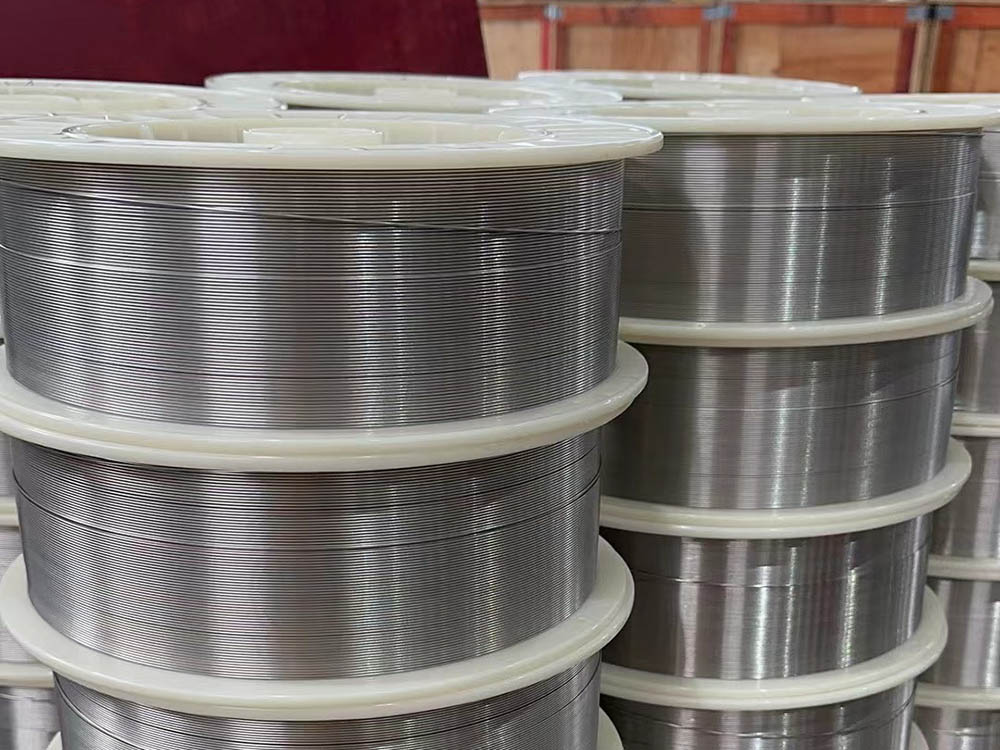What wire is used for welding?

——Choosing the Right Welding Wire for Optimal Performance
Selecting the appropriate welding wire is crucial for enhancing weld strength and corrosion resistance across various industries. This guide explores different types of welding wire, material options, and essential selection factors to ensure successful welding projects.
Welding is widely used in industries such as manufacturing, shipbuilding, and automotive as a connection process. Welding wire can enhance the strength, corrosion resistance, and overall performance of welds; however, the use of inappropriate wire may lead to welding defects and decreased performance. Therefore, selecting the right welding wire is essential for improving project success.
Welding wire can be categorized in various ways; based on the welding process, it can be divided into solid welding wire, flux-cored welding wire, and coated welding wire.
Solid welding wire can further be classified into TIG Welding Wire, MIG Welding Wire, and SAW Welding Wire.
• TIG Welding Wire is suitable for welding stainless steel, nickel alloys, and aluminum alloys. It provides high-quality welds and is commonly used in aerospace and medical equipment applications that require high precision.
• MIG Welding Wire is typically used for materials such as aluminum, stainless steel, and carbon steel. This type of wire offers good weldability and weld quality, with a fast welding speed that makes it suitable for mass production.
• SAW Welding Wire features a specialized welding process that enables high welding speeds and excellent weld quality, making it ideal for thick plate welding in shipbuilding and heavy structural applications.
Flux-Cored Welding Wire is often used for welding aluminum, nickel alloys, and other materials, performing well in environments where protective gases or flux are required, making it suitable for various industrial applications.
Coated Welding Wire is designed to enhance welding performance and corrosion resistance, effectively improving the durability of welds. The special coatings on the surface are suitable for harsh environments or specialized applications.
The materials commonly used for welding wire include stainless steel, nickel alloy, and cobalt alloy:
• Stainless Steel Welding Wire exhibits excellent corrosion resistance and mechanical properties, showing outstanding oxidation resistance in humid or corrosive environments. It is frequently used in demanding applications, such as chemical processing, food manufacturing, and medical devices.
• Nickel Alloy Welding Wire effectively withstands extreme temperatures and pressure conditions, particularly in high-temperature and harsh environments. This wire possesses superior heat and corrosion resistance, making it common in aerospace, chemical, and marine engineering fields, ensuring weld quality.
• Cobalt Alloy Welding Wire is characterized by high strength and toughness, capable of withstanding high impacts and wear. This alloy is primarily used in high-wear and corrosion-resistant applications, making it an essential material in the manufacturing of medical devices and specialized machinery.
To ensure optimal welding results, several factors must be comprehensively considered when selecting welding wire:
• Material Compatibility: Ensuring that the chemical composition of the base material and the welding wire are compatible is crucial for guaranteeing weld strength and durability, preventing performance degradation after welding.
• Welding Process Type: Different welding processes have varying requirements for the wire. MIG welding typically necessitates a higher melting rate, while TIG welding focuses more on the precision and stability of the wire.
• Operating Environment: It is essential to take the operating environment into account when selecting wire, as high humidity or pollution may adversely affect welding results. Factors such as temperature, humidity, and gas composition can significantly influence welding performance.
• Economic Efficiency: It is important to find the best balance between performance and cost based on budget considerations.
As a professional wire supplier, MTSCO is committed to providing high-quality welding wire, covering various materials including stainless steel, nickel alloys, and cobalt alloys, to meet the needs of different industries. Through rigorous quality control and flexible supply chain management, we ensure that our products meet international standards and are delivered on time. With extensive industry experience, the MTSCO team offers professional technical support and excellent after-sales service to assist customers in addressing various challenges during the welding process. By choosing MTSCO, you will receive efficient and reliable welding solutions, ensuring the success of your projects.

 English
English Español
Español Русский
Русский عربي
عربي